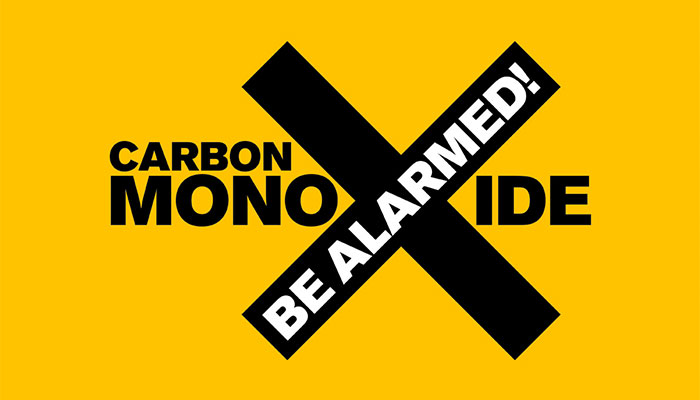UK’s New Carbon Monoxide Regulations for 2025

There have been significant changes to UK smoke and carbon monoxide alarm regulations in recent years, with the most significant coming into force in October 2022, followed by clarifications and enforcement in 2025. For both landlords and tenants, these regulations ensure safety, security, and legal compliance in rental properties throughout England and Wales.
These updates build upon the Smoke and Carbon Monoxide Alarm (Amendment) Regulations 2022, reinforcing safety protocols across the private and social rental sectors. The local housing authority are responsible for enforcing the regulations and could impose a civil penalty of up to £5000 if the regulations are not complied with.
Ensure all smoke and carbon monoxide alarms are present and working. Schedule a professional CO detector installation service.
The new regulations designed to ensure that all new tenancies are equipped with working smoke alarms, and carbon monoxide alarms where required, at the start of each new tenancy. Landlords must ensure that all alarms are in working order at the start of any new tenancy after the above date.
What Are the 2025 Carbon Monoxide Regulations?
The new UK carbon monoxide alarm law 2025 mandates the installation of carbon monoxide (CO) alarms in more types of rented and residential properties than ever before. These updated rules are part of a broader government initiative to reduce carbon monoxide poisoning and improve housing safety.
Key requirements:
- All landlords must install a CO alarm in every room with a fixed combustion appliance (excluding gas cookers).
- Alarms must be repaired or replaced once informed by tenants.
- Applies to both private and social landlords, including Housing Associations and HMOs (Houses in Multiple Occupation).
Responsibilities for Landlords in 2025
If you are a landlord, the 2025 carbon monoxide laws introduce several new landlord responsibilities:
- Install compliant CO detectors in all rooms with gas boilers, heaters, or solid fuel appliances.
- Ensure smoke alarms are fitted on every floor of the property.
- Use approved CO alarm products that meet British Standards.
- Provide written evidence of alarm installation and testing during tenancy agreements and inspections.
- Understand the implications of the Building Safety Act and UK Housing Act 2025.
Failure to comply can result in enforcement notices, fines, or prosecution from local authorities.
A Renter’s Guide to Carbon Monoxide and Smoke Alarm Safety
As a tenant, knowing your rights under these regulations is crucial:
- You have the right to request a CO or smoke alarm if it’s missing.
- Report any faulty or non-working alarms; the landlord must fix them promptly.
- Familiarize yourself with where alarms are installed and how to test them.
Your safety is a legal priority, and these alarms are critical tools for early detection of gas hazards and carbon monoxide risk mitigation.
Do I Need a Carbon Monoxide Detector in Every Room?
No, the 2025 regulations do not require a carbon monoxide detector in every room. However, a CO alarm is mandatory in each room that contains a fixed combustion appliance, such as a gas boiler, gas fire, or solid fuel-burning appliance.
Gas cookers are excluded from this requirement. The law focuses on rooms where the risk of carbon monoxide buildup is higher. For example:
- Required: Rooms with boilers, wood-burning stoves, or gas heaters.
- Not required: Rooms with only electrical appliances or gas cookers.
While the law sets minimum requirements, installing alarms in more areas can improve safety. Extra protection is encouraged, especially in high-risk or poorly ventilated spaces.
What is a solid fuel burning appliance?
Any appliance that burns a type of solid fuel such as coal or wood is considered a solid fuel burning appliance. These are typically:
- open fires
- log burning or solid-fuel cookers
- room heaters
- multi-fuel stoves and fires
- gravity feed boilers systems
Fireplaces that are not being used to heat the room, but are merely decorative, do not considered a solid fuel burning appliance.
Is It a Legal Requirement to Have a Hard Wired Smoke Alarm?
The regulations do not mandate hard-wired smoke alarms in all rental properties, but compliance with building standards and local authority rules may require them in certain cases.
Key points:
- In existing rental properties, battery-powered smoke alarms are acceptable, provided they are in working order and regularly tested.
- For new builds or significantly renovated properties, hard-wired smoke alarms with a backup power supply are often required under Building Regulations Part B (Fire Safety).
- Landlords should check if their property falls under stricter requirements due to its type, size, or fire risk profile.
While not always a legal requirement, hard-wired alarms offer increased reliability and may be preferred by building inspectors or local fire safety officers.
When must the alarms be checked?
Alarms must be tested on the first day of the new tenancy to ensure that they are working properly. It is advisable for landlords to prepare an inventory list to go through with any new tenants on the first day. Within the document there should be a record that the alarms have been tested and that the tenants are satisfied that they are in working order. The tenants should sign the document.
What type of alarms should be installed?
The regulations do not stipulate the type of alarm that must be installed, but as a landlord you should choose an appropriate alarm. The regulations do not recommend whether alarms should be battery powered or hard wired. We can give you advice on what is currently available on the market.
Heat detectors cannot be installed as replacement for smoke alarm.
Although carbon monoxide alarms only need to be installed in rooms with a solid fuel burning appliance gas appliances also emit carbon monoxide so it is encouraged that CO2 alarms are also fitted in any room that contain gas appliances.
What Are My Responsibilities as a Tenant?
Tenants play an active role in maintaining safety standards in their rental property. While landlords are responsible for installing and repairing alarms, tenants are expected to:
- Regularly test smoke and CO alarms, usually once a month.
- Report any problems or non-functioning alarms to the landlord or property manager immediately.
- Avoid tampering with or removing alarms, unless authorized for testing or maintenance.
- Allow access to the property when landlords or contractors carry out alarm installation, inspection, or repair.
- Stay informed on how alarms work and what to do if they go off.
By staying proactive, tenants help ensure early warning in case of fire or gas incidents and maintain a safe living environment for everyone in the household.
Final Thoughts
Whether you’re a property owner or a renter, the carbon monoxide detector legal requirements UK in 2025 are a vital part of modern housing standards. The new housing safety laws UK 2025 are not only about legal compliance – they are about saving lives.
UK’s New Carbon Monoxide Regulations for 2025
Need help? Hire the London Property Service experts today by giving us a call on 020 3078 5920.




